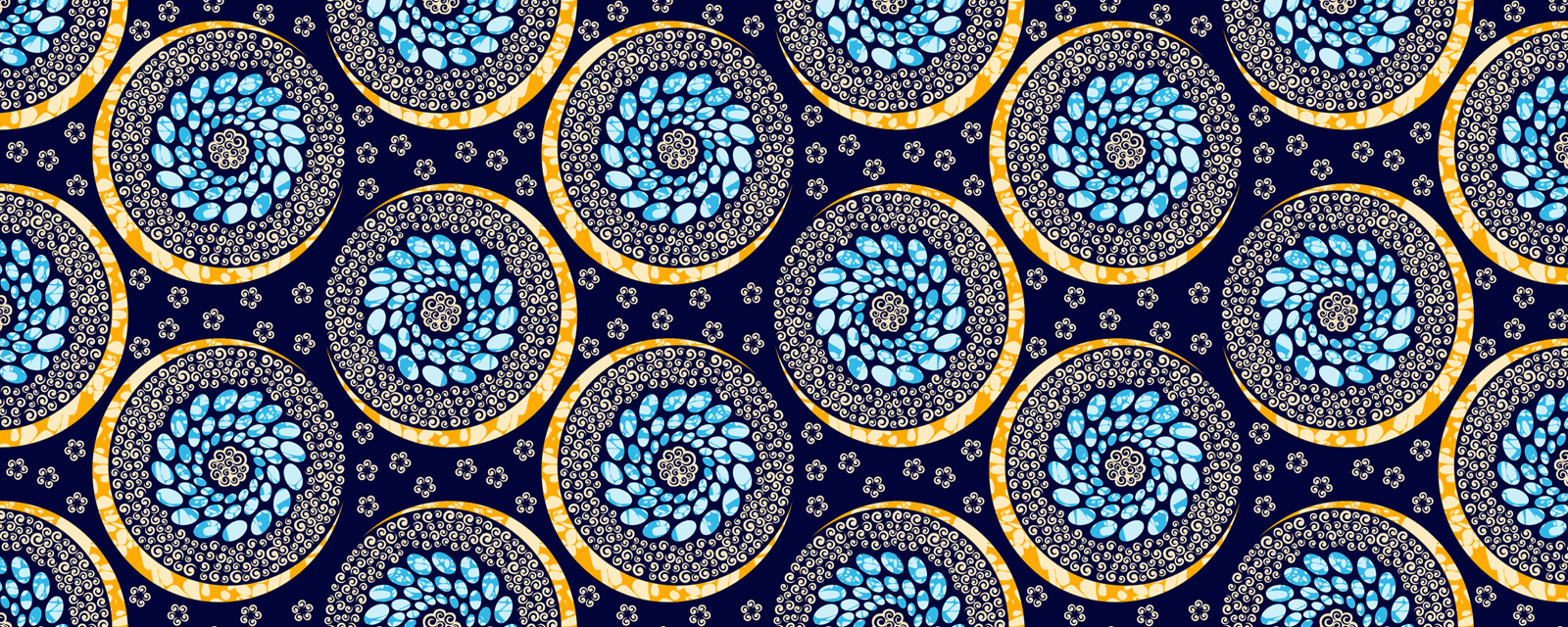This is a well-known Swahili song, a version of which we posted previously without the vernacular text (see Mwananazi). This is an older, longer version, sung in praise of a dutiful wife in the Islamic tradition. It was first recorded in the 1860s, but is still extant in slightly different versions. The translation (slightly revised) was by Hamisi wa Kayi.
Like Serenade, it is one of the many poems associated with Liyongo, the national hero of the Swahili people. Mwananazi is praised for her behaviour towards her husband, but in the course of the description we are given a fascinating glimpse of the interior of an aristocratic Swahili household, with its sophisticated tastes and its possessions drawn from all parts of the world. At the same time, there are strong hints of a religious meaning to the poem. ‘Sada’ and ‘Rehema’ (the servants names in Line 9) mean ‘happiness’ and ‘charity’. Mwananazi’s conduct is not just pleasing to her husband, but pleasing to God and therefore a pattern for womankind.
Give me a chair that I may sit down
And serenade my Mwananazi,
That I may serenade my wife
Who takes away my grief and heaviness.
She stands under the door (1)
When I go out to walk,
When I go out on business,
And she tells her servants
And says to them, “Sada and Rehema,
Cook and do not delay.
Cook, and make haste,
Cook rice and curry.”
If she finds I stay long,
She sends her slave girl,
“Look for him in the Sultan’s way,
Or there with the sovereign prince,
Look for him
on the seats at his brother’s,
Or at his mother’s, his aunt’s,
And take him, come with him quickly
(What are you doing till this time?)”
And tell him, ‘Master, you are called,
Let us go quickly, do not be slow,
Your delay makes her weary of
standing,
And tears come from her eyes.’
Tell him, ‘Let us go, go ahead, I’ll follow,
And comfort her,
so she may end her grief,’
Follow behind him, walking elegantly,
As he smells of musk and ambergris. (2)
When he enters and salutes her,
The child of Hejaz replies to him. (3)
At once she rises and stands
And places her hand on his shoulder,
And he prays for her
to God the Compeller,
“O mother,
may God supply your needs,”
And the mistress lifts up her hand
And puts it up to the bamboo,
Taking down a large cloth
of ancient work
With a beautiful border woven into it,
And he puts the handkerchief
to her eyes,
The child of his father and of his aunt,(4)
And she says, “Master, let us sit down,
Do not stand overmuch, tiring yourself,
Call Fatima to me, let her come
Quickly, and leave off sleeping,
Let her dish up an Indian pilau
With raisons, without curry. (5)
Bring a fine European chair,
And a good Persian tray, (6)
A tray-stool, beautifully engraved,
And a dish shining like the moon,”
And she says, “Let the slaves come too,
Why are you not singing praises?”
Immediately, it is laid for him,
And Fatima has taken the water bottle,
In it has been put the juice of raisins,
For him to drink like a drinker of wine.
Feeding him morsels in his mouth,
And shows him a good place to lie down
Giving him a betel leaf from Siwi, (7)
Smooth, smooth from Ozi.
She folds it and puts in into his mouth
With cardamoms and almonds.
I have finished praising the girl,
My choice one, Mwananazi.
Nipeni kiti, nikae kitako
Mwananazi wangu,
Nipembeze mwanamke wangu
Aniondoa hanu na simanzi.
Husimama chini ya mlango
Nikitoka kwenda kutembea,
Nikitoka kufuyana shughuli,
Huwaambia watumishi wake,
Akamwambia Sada na Rehema
Pikeni msukawilie,
Pikeni, mfanya upesi,
Mpike wali na mchuzi.
Akiniona nimekawilia,
Humtuma kijakazi chake.
Mtezame njia ya Sultani,
Ao kwao wa mfalme aliyetawala,
Mtezame vikaoni
vya nduguze
Ao kwao kwa mamaye, shangazi lake,
Kamshike, upesi uje naye,
Wafanya nini hatta wakati huu?
Kamwambia, Bwana, unakwitwa,
Twende upesi, sifanye uvivu,
Kukawilia kwako huchoka
kusimama
Na machoni yatoka machozi.
Kamwambia, twende tangulia nnakuja,
Kamtulize,
awache majonzi,
Kamfuata nyuma kwa tambo,
Akinuka mesiki na ambari.
Akipita akamwamkia,
Kamjibu mtoto wa Hejazi.
Marra hiyo akaondoka akasimama,
Aka’mweka mkono wa bega,
Kamwombea
Muungu Jabari
“Ewe mama,
Muungu atakujalia,”
Akainua mkono Mwana
Akaupeleka juu ya mwanzi,
Akaangua kisuto
cha kikale,
Kizuri kimetariziwa,
Akamweka kitulizo
cha macho,
Mwana wa babaye wa shangazi,
Akamwambia, “Bwana tukae kitako,
Usisimame mno, ukafanye uvivu,
Mwiteni huyo Time aje,
Upesi, awache usingizi,
Apakue pilao ya kihindi,
Ya zabibu haina mchuzi.
Lete kiti kizuri cha Ulaya,
Na sinia njema ya Shirazi,
Imetiwa nakishi,
Na sahani inang’ara kama mwezi.”
Akanena watumwa na waje,
Kwa nini hamwimbi?
Marra hiyo akaandikiwa
Na Time ameshika guduwia,
Imetiwa maji ya zabibu
Akimnyewesha kama mnyua tembo,
Akimlisha akimrai
Akimwonyesha kwema malazi,
Akimlisha tambuu ya Siyu,
Laini laini ya Ozi.
Akaikunja akimtia kinwani´
Na iliki pamoja na lozi,
Nimekoma kusifu mwanamke,
Wa kuchagua wangu Mwananazi.
from Swahili Tales (1870), 175–181,
by Edward Steere
Footnotes
- The doorway of a rich Swahili house would be raised above a flight of steps.
- Expensive perfumes, from the musk deer and the sperm whale respectively.
- Hejaz is in Saudi Arabia. The Swahili have strong links with the Middle East.
- That is, his paternal uncle.
- Poetry in performance is not always consistent. Earlier, Sada and Rehema had been ordered to prepare curry.
- The chair and the tray-stool are expensive luxuries.
- Betel leaves, cultivated throughout Asia, are chewed as a stimulant and breath freshener. The betel mentioned is apparently from Egypt. Siwi (or Siwa) is an Egyptian oasis near the Libyan border. Ozi is a tributary of the Upper Nile.

